France fuel protests: Police in Paris fire tear gas
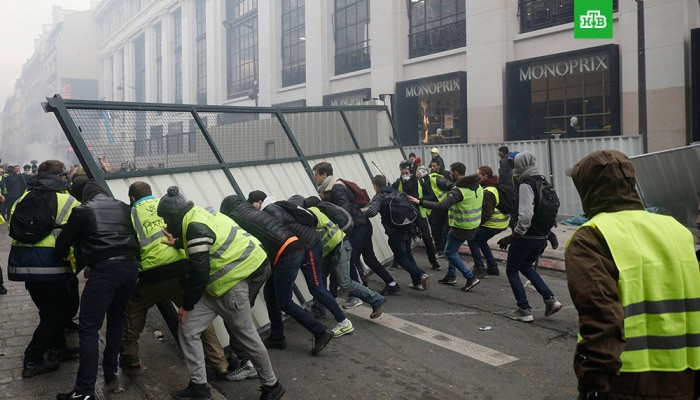 Police in Paris have used tear gas and water cannon to disperse protesters, in a second weekend of demonstrations sparked by rising fuel prices. Violence erupted on the Champs-Elysées as protesters tried to get through a security cordon around sensitive sites. About 5,000 protesters had converged on the avenue. Dozens of people were arrested after clashing with police. Organisers of the "yellow vest" movement billed the latest protests as "act two" in their rolling campaign. Named after their distinctive high-visibility attire, the protesters oppose an increase in fuel duty on diesel. More than 100,000 took part in Saturday's protests across the country. They passed off largely peacefully - except in the capital, where 8,000 demonstrators gathered. What happened on the Champs-Élysées? Most demonstrators insisted that they were peaceful. "We are not here to pick a fight with cops, We just want the government to listen to us," one of their spokespeople, Laetitia Dewalle, told AFP news agency. Some though tried to break through the police cordon. They lit fires, tore down street signs, erected barricades, pulled up paving stones and threw them at police while shouting slogans against President Emmanuel Macron. The chaos continued into late afternoon. But by the evening police had cleared most of the area. Officials say 19 people were injured in the clashes, including four officers. Interior Minister Christophe Castaner accused protesters of being influenced by the leader of the far-right National Rally party, Marine Le Pen. But she accused him, on Twitter, of dishonesty. What about elsewhere in France? There were a number of minor clashes. Overall 130 arrests were made. The protests and the violence were on a much smaller scale than the previous week. Last Saturday more than 280,000 people took part, more than 600 people were injured and two people were killed. Meanwhile a march against sexual violence was kept well away from the latest unrest in Paris. Not just about fuel The spark for the protest is clear, but there's not much that unites the "yellow vests" beyond their high-visibility gear and their anger at rising taxes and living costs. In a country where protests are often tightly managed by one political party or trade union, this is a movement with no recognised national leader, no formal structure or affiliation, which unites voters of all ages, from the far-left, the far-right, even those who once supported President Macron. Their new co-operation is a sign that Mr Macron has failed to restore their faith in politicians, and that deep divisions remain. These are not France's most marginalised citizens, but those who say they struggle even while working, who feel they're bearing the brunt of France's economic problems, while businesses and the rich get tax breaks. The government has blamed ultra-right gangs for the violence in Paris, but there are many peaceful citizens - both at the barricades and at home - who support the movement too. Its diversity and democracy has been its strength so far, but also makes its ultimate vision unclear, and its membership hard to control. 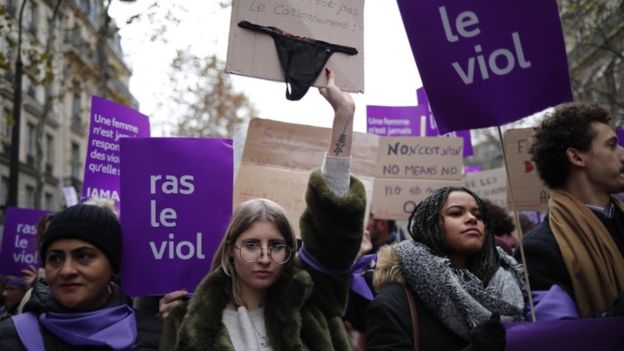 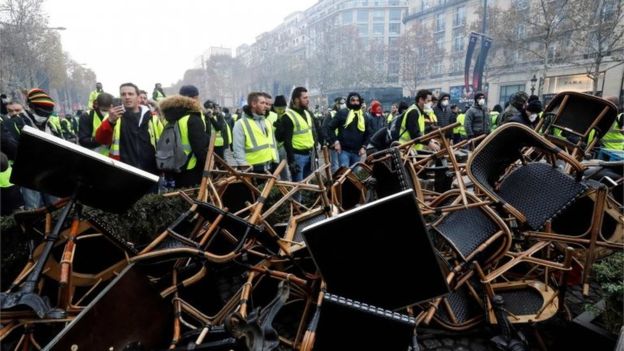 |
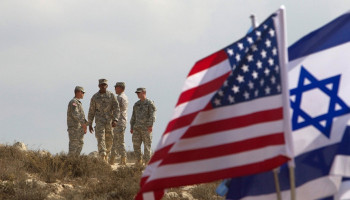
U.S. and Israel Meet to Discuss Rafah Operation
11401:18
Bride dies at own wedding in freak tragedy in front of traumatised family
63617.04.2024, 22:18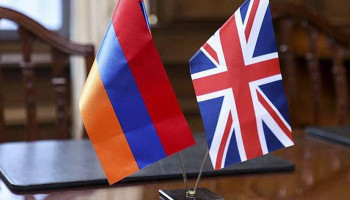
#Times: London, Yerevan hold talks on sending illegal migrants to Armenia
98215.04.2024, 12:06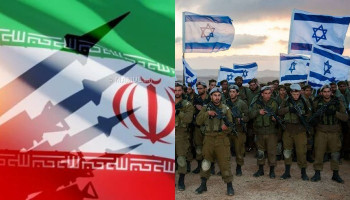
Iran may attack Israel on Sunday morning — Al Jazeera
121213.04.2024, 23:48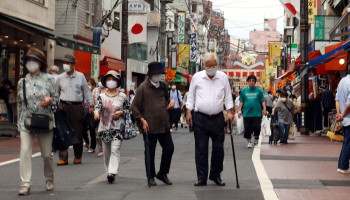
Japan's Population Falls for 13th Straight Year
124612.04.2024, 23:30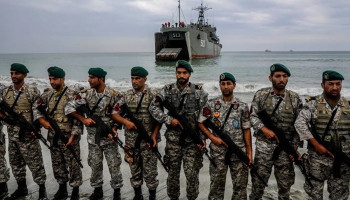
U.S. restricts employees’ travel as Iran vows revenge on Israel
124512.04.2024, 21:24
